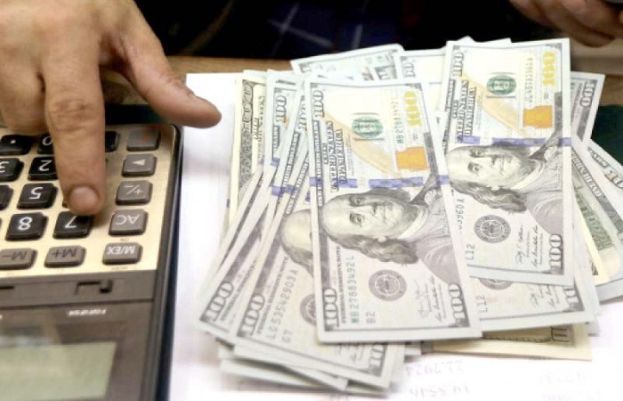China is expanding its nuclear arsenal much more quickly than anticipated, the United States has said, but Beijing on Thursday slammed the Pentagon report as overhyping the threat.
The United States has declared China its principal security concern for the future, as Beijing works to build the People's Liberation Army into "world-class forces" by 2049, according to its official plan.
The People's Republic of China (PRC) could have 700 deliverable nuclear warheads by 2027, and could top 1,000 by 2030 — an arsenal two-and-a-half times the size of what the Pentagon predicted only a year ago, according to the Pentagon report published on Wednesday.
Like the United States and Russia, the two leading nuclear powers, China is building a "nuclear triad," with capabilities to deliver nuclear weapons from land-based ballistic missiles, from missiles launched from the air, and from submarines, it said.
Beijing is also "building the infrastructure necessary to support this major expansion of its nuclear forces," according to the assessment, which came in the Pentagon's annual report to Congress on Chinese military developments.
But the report argued China was likely not seeking a capability to launch an unprovoked atomic strike on a nuclear-armed adversary — primarily the United States — but looking to deter attacks by maintaining a credible threat of nuclear retaliation.
Beijing has dismissed US fears over its military development, and on Thursday accused the Pentagon report of aiming to "hype up talk of the China nuclear threat".
"The report released by the US Department of Defence, like previous similar reports, ignores facts and is full of prejudice," said Chinese foreign ministry spokesman Wang Wenbin.
A year ago, the Pentagon's China report said the country had about 200 deliverable warheads and would double that by 2030.
Independent researchers have in recent months published satellite photographs of new nuclear missile silos in western China.
A satellite image from Planet Labs Inc. shows what researchers say are missile silos under construction in western ChinaThe developments come as China expands and upgrades its military, seeking the capability of projecting power globally, much as the United States has done for decades.
The rivalry has increased concerns about a possible US-China clash, especially over Taiwan, which is closely supported by Washington but claimed by Beijing as its territory — to be seized one day, by force if necessary.
By 2027, the latest report said, China aims to have "the capabilities to counter the US military in the Indo-Pacific region, and compel Taiwan's leadership to the negotiation table on Beijing's terms."
The report also confirmed recent reports that in October 2020, Pentagon officials were forced to quell real concerns in Beijing that the United States, driven by domestic political tensions related to the presidential election, intended to instigate a conflict with China in the South China Sea.
Underscoring its fears, the PLA had issued intensified warnings in state-controlled media, launched large-scale military exercises, expanded deployments and put troops on heightened readiness, the report said.
After senior Pentagon officials moved to directly speak to Chinese counterparts, the concerns eased.
"These events highlighted the potential for misunderstanding and miscalculation, and underscored the importance of effective and timely communication," the report said.
It also questioned the PLA's intent in biological research into substances that potentially have both medical and military uses.
"Studies conducted at PRC military medical institutions discussed identifying, testing, and characterizing diverse families of potent toxins with dual-use applications," the report said, raising concerns over compliance with global biological and chemical weapons treaties.
Such concerns have mounted since Covid-19 emerged in Wuhan, central China, an area also home to a biological research lab with PLA connections.
China has denied the facility had anything to do with the Covid outbreak, but allowed limited access to it for investigators.







